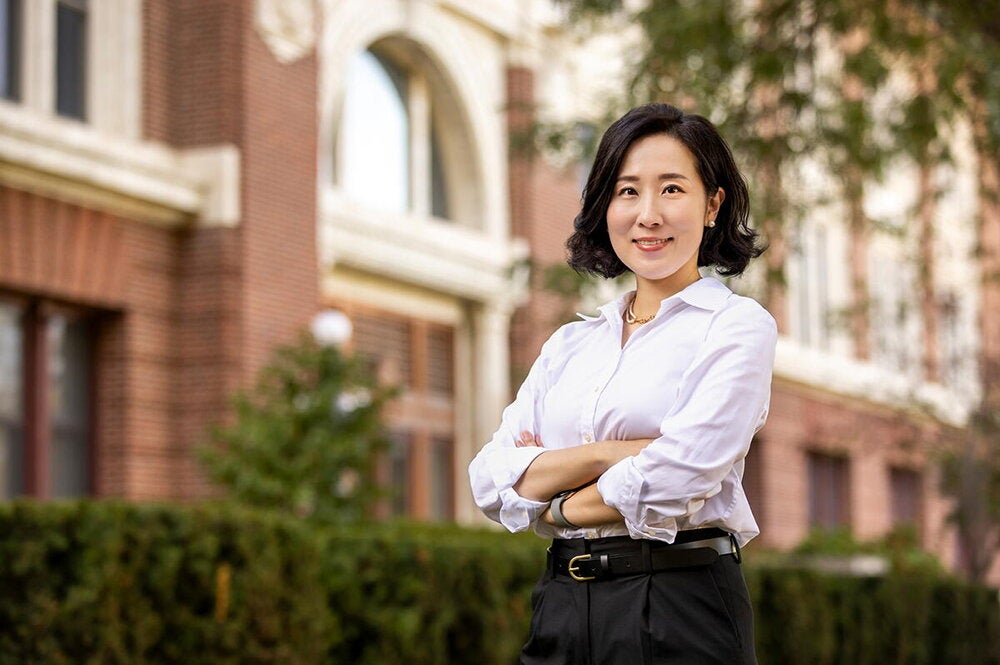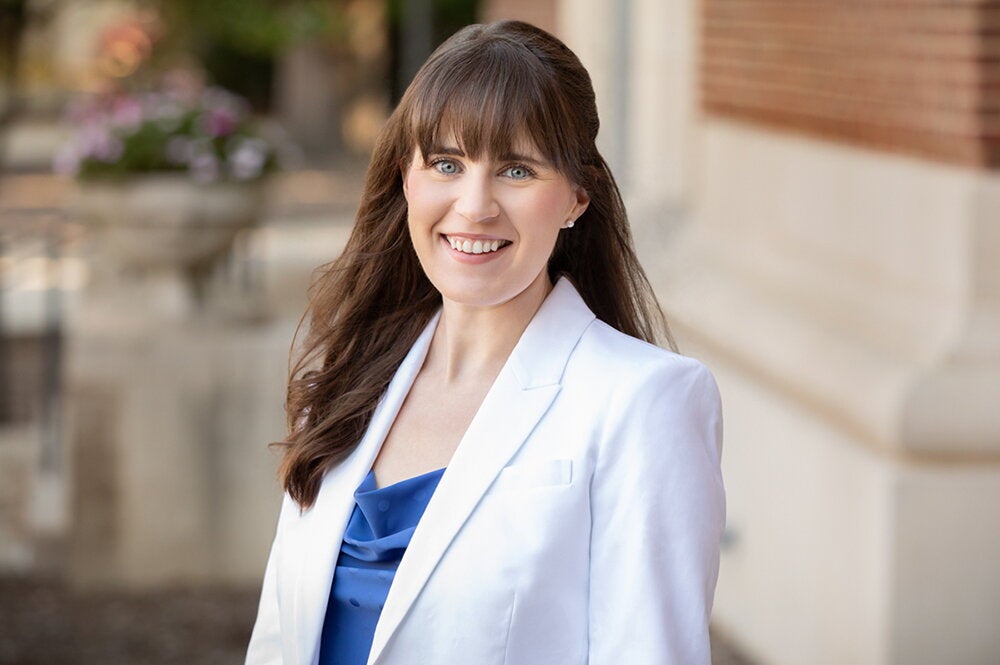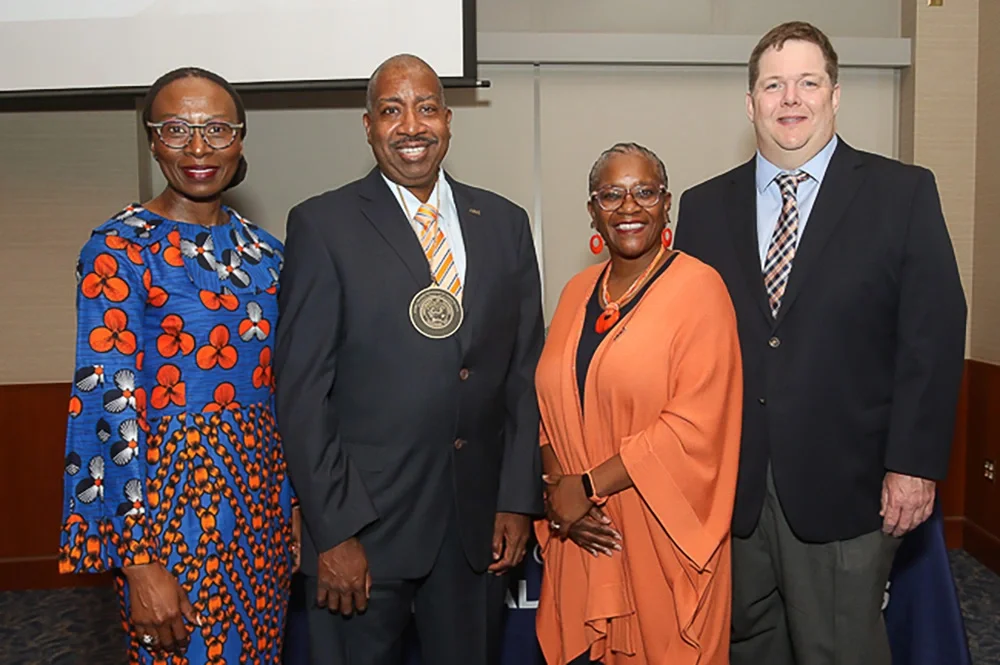
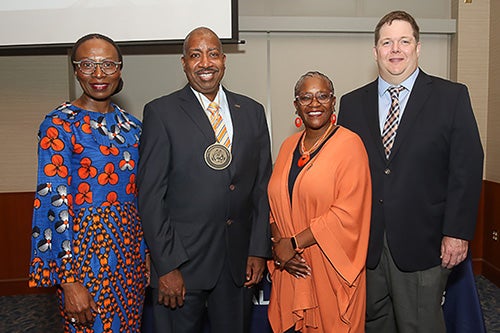
In a ceremony hosted by the College of Liberal Arts & Sciences, communication professor Travis Dixon was honored as the new David L. Swanson Professor of Communication.
Dixon, whose research focuses on the prevalence and impact of stereotypes in mass media, was recognized for his exceptional scholarship, mentorship, and teaching throughout his accomplished career.
The professorship honors David Swanson, who was a professor in the Department of Communication from 1972 until he passed away in 2004. Swanson was a pioneering researcher, helping to create the interdisciplinary field of political communication. Known for his wit and dedication to exceptional scholarship and academic ideals, Swanson had a profound and lasting impact on the University of Illinois as a professor and mentor, department head, and associate provost.
Continuing that tradition of groundbreaking scholarship, Dixon’s research has been published in leading communication journals, featured in popular communication methods textbooks, and has earned him numerous top paper awards from the National Communication Association (NCA) and the International Communication Association (ICA).
"I know David Swanson would be exceedingly pleased to have such a prominent scholar of media and socially important issues on our faculty, and even more pleased for him to be supported in this way,” said department head John Caughlin.
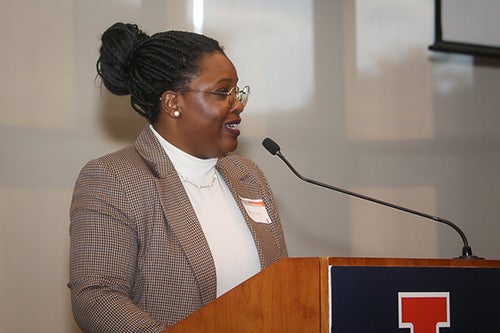
Dixon, who also serves as the director of graduate studies in the Department of Communication, received his bachelor’s degree in communication studies from UCLA before earning a master’s and doctorate from the University of California, Santa Barbara.
Mary Beth Oliver, professor of media studies at Penn State University, described Dixon as a visionary who is passionate about social justice in a field still lacking diversity.
“He is a scholar that truly understands the power of research to expose social injustice, who works tirelessly to be a voice for those who are oppressed, and who envisions a world filled with compassion, respect, and love,” she said.
Despite facing adversity throughout his career, Dixon succeeded as a student, scholar, and trailblazer. At UC Santa Barbara, he became the first Black scholar to receive a doctorate from the Department of Communication. At the University of Illinois, he was the first Black scholar to receive tenure and become a full professor in the department. In 2019, he was inducted as the first Black ICA Fellow, one of the highest honors in the field of communication.
Dixon expressed his gratitude, not only for being honored with this professorship, but for the people who helped him overcome challenges he faced throughout his life and academic career.
“I have tried to be a trailblazer and uplift others — specifically the oppressed and downtrodden — with my work. I want my work to be good and a catalyst for positive social change, and that's what I'm going to use this opportunity to do,” he said.
“I want to continue to be an academic explorer, trailblazer, and uplifter, and I ask all of you to hold me accountable and encourage me to help others.”
Dixon’s impact as a mentor for graduate students was also celebrated. One of his former students, Marisa Smith (PhD, ’20, communication), shared messages from Dixon’s former students and described how his mentorship helped shape her academic career.
Smith, now a professor at Michigan State University, concluded her remarks by stating that Dixon’s accomplishments go well beyond what appears on a CV.
“Travis’ accolades precede him: 6,989 citations for his phenomenal work, grant awards, countless invited lectures, ICA fellow, and soon to be David L. Swanson Professor of Communication,” she said.
“However, his students and advisees represent what these accolades cannot convey. Travis has empathy; guidance; a loving and affirming spirit; the ability to critique with compassion; an ability to recognize and meet people’s needs; the ability to stand in the gap for others and have their back; and, most of all, the ability to sustain support well past when his students have graduated.
“On behalf of your advisees — past and present — thank you, Travis.”

